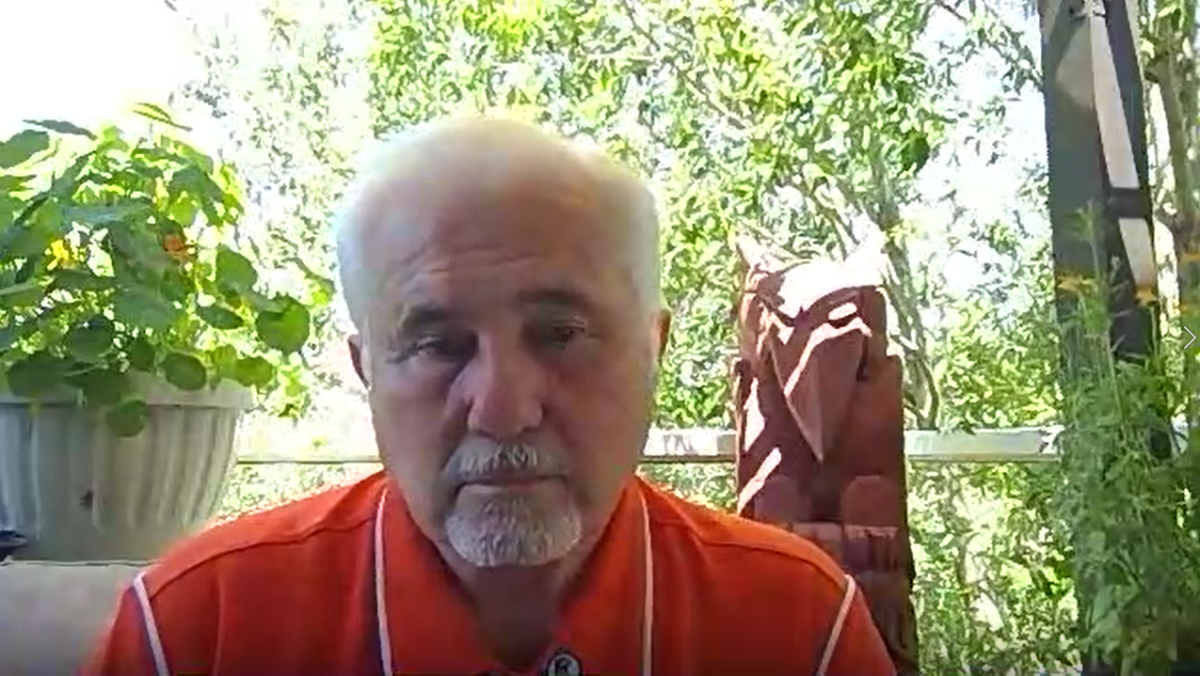A Calgary councillor says he’s had enough of his fellow Métis Albertans being treated as “second-class Indigenous people.”

“The agreement that we’ve been working on (with the UCP government) — negotiations for four years — to be just discontinued with no notice is not acceptable,” Ward 1 Coun. Ward Sutherland, a member of the Métis Nation and card-carrying UCP party member, told Global News.
“We’re at a loss of trying to understand why and there’s no explanation to why we’re really getting treated, as a Métis Nation in Alberta, as second-class Indigenous people.”
The negotiations were centered around a Métis Nation of Alberta Consultation Policy, which began with the former Progressive Conservative government and continued under Alberta NDP reign, but was dropped by Jason Kenney’s UCP government.
The Métis Nation of Alberta (MNA) filed a lawsuit against the province in mid-June over what it says is negotiating in bad faith on an agreement that would guide how Alberta’s Metis are consulted on resource development, or government plans that could affect their traditional lands and practices.
“The final draft was actually ready to go and it was just, ‘OK, no, we’re not discussing it anymore. End of story.’”
In a statement to Global News, Indigenous Relations Minister Rick Wilson said he wasn’t able to comment on the consultation policy as the matter was with the courts.
- Calgarians ‘pull for wishes’ in 2nd annual fundraiser supporting kids with critical illness
- Calgary couple find their ‘Zen’ through axe throwing, compete in world championships
- Calgary lifts water restrictions following repairs to feeder main
- Recall expands for Nutrabolics vegan bars over undeclared milk
“However, we value our relationship with the MNA as shown by our support of affordable housing projects, Indigenous name reclamation, the Residential Schools Community Research Grant, cultural outreach for Métis Crossing, and ongoing supports during the pandemic,” Wilson said.
That the matter is in court sends a strong message, according to Sutherland.
“Why are we in court? That says enough,” Sutherland told Global News. “The process was done. It was ready to go and it stopped. That speaks for itself.”
MLA Richard Feehan, opposition critic for Indigenous Relations who previously held the portfolio when the NDP were in government, said the Métis community needs to be at the table with the province in the same way that other Indigenous communities have been.

Get breaking National news
“That was the process that we were working on when we were in government,” Feehan told Global News. “We sat down and we started to design a consultation policy that was completely in line with the one we signed off with the Métis Settlements General Council and of course, the one we have with all the First Nations in this province.
“And we had gotten quite a ways into that process.”

Feehan said addressing some of the concerns unique to the Metis Nation lengthened the timeline. But in his opinion, the finish line was in reach for his successor.
“The issue was that Alberta stood up and got away from the table,” Feehan said. “Had they stayed at the table, they’d probably have it signed off by now, but they didn’t.
“They abandoned it without reason. And they abandoned without forethought about reconciliation.”
‘Mixed blood’
The term “Métis” stems from the Latin “to mix” and refers to cultural and ethnic identities that resulted from Aboriginal and European unions as far back as the 1700s. Métis people in the province pre-date the forming of Alberta.
Sutherland said his Métis heritage, which he’s traced back to Scottish settlers and Cree people of the Red River, is often misunderstood. He says his “mixed blood” results in members of First Nations not liking him for his European heritage, and white people spurning him for his Indigenous heritage.
“We’ve been in this unusual pocket for generations,” Sutherland said.
A 2016 Supreme Court decision recognized Metis as one of the “aboriginal peoples of Canada” under the constitution.
Alberta is the only province that has land dedicated to its Metis people, but does not have a consultation agreement like Saskatchewan, Manitoba and Ontario.
“Why is the federal government recognizing us but our provincial government has not?” Sutherland said.
“We have fought hard for years and and we’ve had the Supreme Court agree that we should have the rights of other Indians, as it’s stated in the Constitution,” the councillor said. “And we’re asking that the province actually just follows that. I don’t think that ask is too much.”
Feehan acknowledged the work to create a consultation policy with the MNA isn’t easy.

“You are going to have to sit down, roll up your sleeves and develop an honest relationship with the Métis people through their representatives and develop a process,” the Indigenous relations critic said. “But I don’t even see the government accepting the truth part of that — that is, the Métis actually exist and that they do have rights by virtue of existing.
“I do not see clarity from this government on that, and so I’m not surprised, given that they have been neglectful of the truth, that they are then neglectful of the reconciliation.”
Enacting the consultation policy would be a step on the path of reconciliation for Sutherland.
“I think true reconciliation means we wouldn’t be in court,” Sutherland said. “We would have that policy and I would be sitting here praising the current government for their cooperation and how we work well together, instead of asking them to reflect and resolve this issue.”








Comments